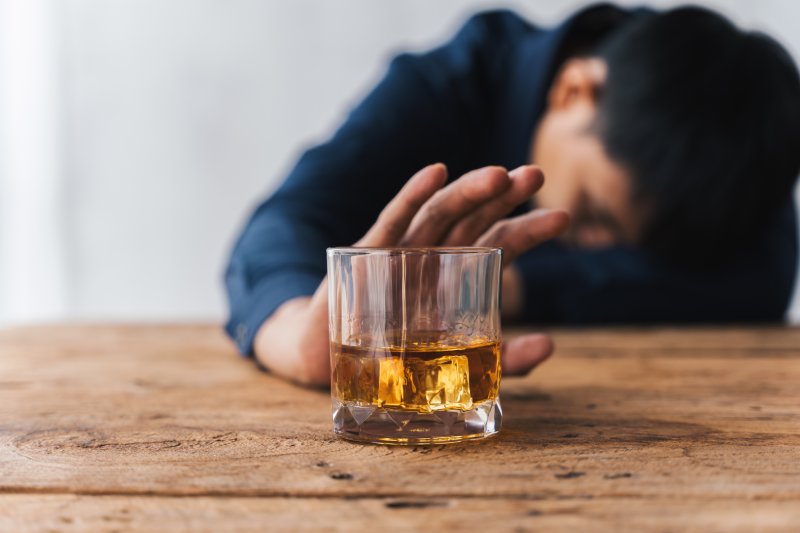
For many, a nightcap seems like the perfect way to unwind before bed. A glass of wine or a shot of liquor might offer relaxation, but what impact does alcohol have on sleep apnea? Continue reading to delve into the intricate relationship between sipping and sleeping to understand how alcohol may influence this sleep disorder.
Alcohol’s Effects on Sleep
Alcohol is known for its sedative properties, inducing relaxation and promoting drowsiness. Many patients turn to it as a means of winding down after a long day. However, while alcohol might help you fall asleep faster, it can disrupt your natural sleep cycle.
It is known to degrade rapid eye movement (REM) sleep, the stage associated with dreaming and essential for cognitive function. Alcohol also makes it harder to fall asleep and stay there, leading to conditions like insomnia.
How Does Alcohol Effect Sleep Apnea?
Alcohol acts as a muscle relaxant, including the muscles in the throat. For patients with sleep apnea, this relaxation can worsen airway blockages and lead to more difficulties like:
Increased Apnea Events
Studies suggest that alcohol consumption can elevate the frequency and severity of sleep apnea episodes. The relaxing effect on throat muscles contributes to airway collapse, disrupting regular breathing patterns during sleep.
Worsening Snoring
Snoring is a common symptom of sleep apnea. Alcohol’s muscle-relaxing properties can intensify snoring, making it more disruptive to sleep.
Risk of Central Sleep Apnea
Because alcohol suppresses activity in the brain, alcohol use has been associated with an increased risk of central sleep apnea. This is a less common form of the disorder where the brain fails to send proper signals to the muscles controlling breathing.
Can You Still Have Alcohol and Get Adequate Sleep?
Doctors and dentists alike will tell you to avoid alcohol if you can, especially if you want decent sleep. Here are some suggestions for striking a balance between your sleep health and your desire for alcohol:
Moderation and Timing Is Key
If you choose to consume alcohol, do so in moderation. Limiting intake, especially closer to bedtime, can mitigate its impact on sleep quality. It’s recommended that you have no alcohol at least four hours before you plan to hit the hay.
Establishing a Routine
Establishing a consistent sleep routine, including a regular bedtime and wake-up time, can help regulate your sleep patterns and minimize disruptions caused by alcohol. Don’t let your alcohol habits dictate your sleep!
If you have sleep apnea or suspect you do, don’t delay. Consult with a healthcare professional—either your doctor or your dentist. They can diagnose your condition and provide advice tailored to you. With their help, you’ll finally be able to have a decent night’s sleep for total body health.
About the Author
Dr. Michael E. Michel is a skilled dentist with advanced training in sleep medicine. He enjoys working with his patients to ensure their comfort while undergoing treatment. Dr. Michel earned his Doctor of Dental Surgery from the University of Missouri-Kansas City School of Dentistry. Today, he regularly chases continuing education in the field of sleep dentistry to better serve his patients. Call (785) 273-0801 to schedule a sleep apnea consultation at Sleep Solutions & TMJ Pain Therapy or visit the website to browse their other services.
